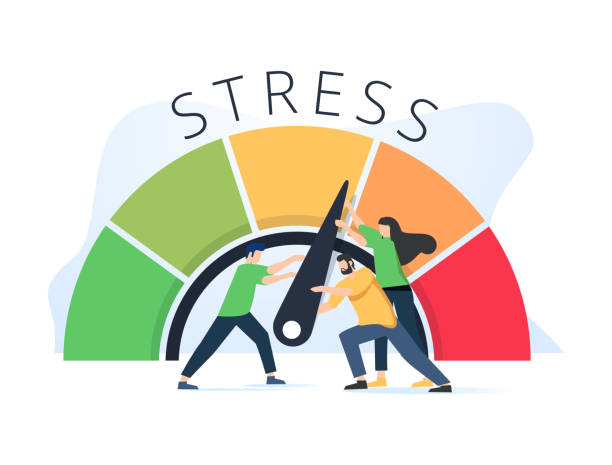Keeping Your Stress From Managing You
February 24, 2022
Everyone has feelings of being stressed or overwhelmed, but how we deal with these issues are totally unique, yet the lasting effects are universal.
Many things can contribute to the stressors in everyday life, and in the article posted on mind.org.uk they shared that some of those factors include, big changes, being under lots of pressure, worrying about something in your life, feeling like you don’t have much control in your life, amongst many others.
The website also shared that what makes you feel stressed varies person to person due to, your perception, your expertise in dealing with what was at hand, as well as emotional resilience, amount of pressure, and the support that you may or may not be receiving at the time.
Mental health advisor at Westerville South, Christin Hammons shared that having mechanisms in place to deal with these issues is very important because, “… with coping skills we’re able to better achieve the things we want… if we learn how to handle it in a healthy why then we’re able to reach our goals and have a more balanced everyday life.”
Without these healthy habits the stress in your daily life, there are lasting effects, both physically and emotionally.
Some of the stress signs, (according to my.clevelandclinic.com) include muscle tension, jaw clenching, chest pains, sadness, etc.
According to healthline.com, in the absence of these habits people can develop insomnia, increased depression, bad headaches, etc. Also, if your stressors go unmanaged for a longer amount of time, people may be at risk for bigger issues, including higher chances of a heart attack due to the heart being worked too hard for too long.
The body’s stress hormones also weaken the immune system causing the body to be more susceptible to sickness.
Some people may struggle to find out what works for them, while others have it figured out.
Senior Dominique Woodard shared that the mechanism that works best for her is sleeping because it helps her forget what she was stressing about.
Senior, Jalissa Lopez shared that music and dancing helps her the most because she’s happy when she’s doing it.
Hammons added that one of the mechanisms that work for her is baking. “I’m terrible at it, but I like it. I like creating something,” Hammons said.
These mechanisms show diversity and go hand in hand with the CDC’s suggestions on how to cope with your stress.
The CDC suggests that you should take time for yourself, make time to unwind, and take care of yourself, etc.
It may be difficult to pinpoint when to start using your mechanisms, or even what mechanisms to develop.
Hammons suggested talking to others, whether it’s a trusted adult or friend, or even looking online for ideas is helpful sometimes when you don’t know where to start or when to use them.
She also said that in order to find what works you should do a ton of things and find what doesn’t work first.
Many things signal when to put your mechanisms to work, for example, Junior Nevaeh Brownlee shared that she knows when to use hers when she notices she’s become more irritable.
Senior Ava Robey added that when her breathing increases she knows she has to take a step back and regulate herself and any possible stressors.
We all deal with stress in a large variety of ways, some may still be struggling on how to do it properly.
Hammons shared what she’d say to someone struggling, “… Try to put one foot in front of the other.” In many situations thinking about all the things you have to deal with all at once is overwhelming. “… trying to really chunk it (your time)… and take it one step at a time can really help.”






